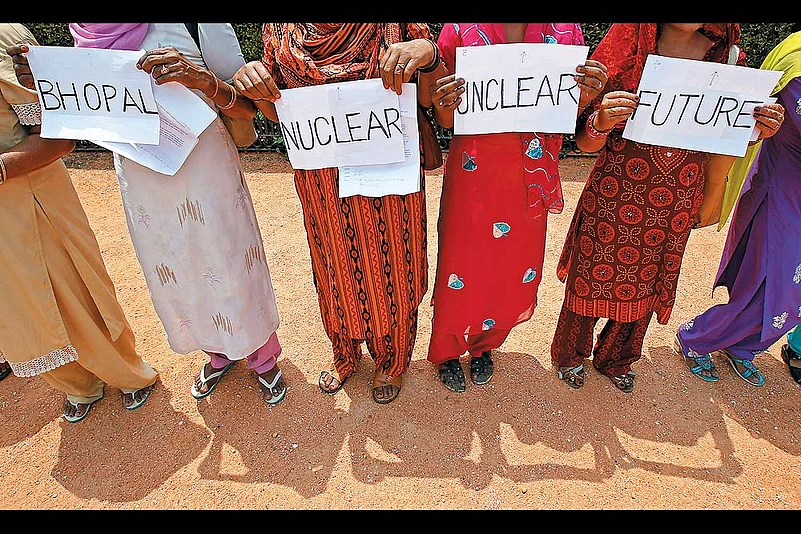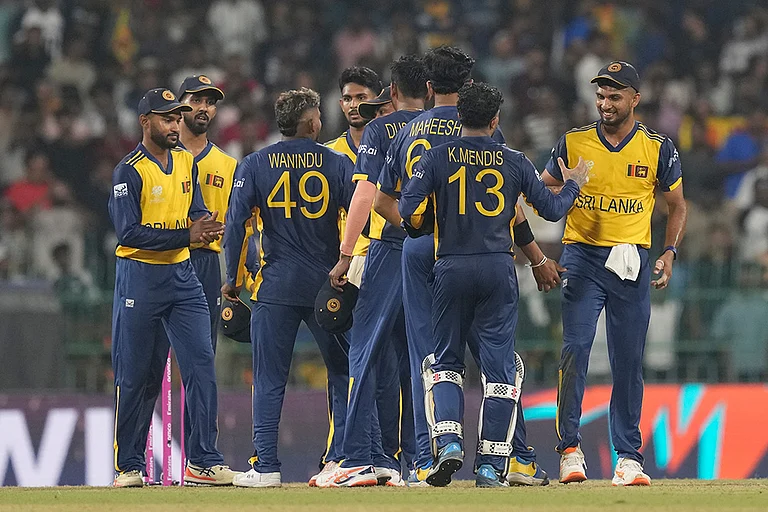Beyond The Nuclear Deal
- US Trade and Development Agency to sign agreement for undertaking pre-master plan for three smart cities in Visakhapatnam, Allahabad and Ajmer.
- US investment flow to be channeled into Modi’s pet schemes—Make in India, Digital India, Skill India. $41 billion already committed over the next three years.
- Two-way Indo-US trade is around $100 billion; proposal to raise it to $500 billion over next five years.
***
Prime Minister Narendra Modi’s government is in a bind as it races to chalk out an innovative solution to the liability issue that has held back US companies from capitalising on the India-US civil nuclear deal almost eight years after it was signed.
With a pro-investor image to live up to, the Modi government is banking on flexibility and creativity to win over the US companies to strike some deals during US President Barack Obama’s second visit to India. The US continues to exert pressure for a dilution of the Civil Liability for Nuclear Damage Act 2010 that lays the onus on suppliers and not just the operator for any potential accident. The catch—some of the safeguards being objected to by the US and other overseas companies (including the French) were put in place at the insistence of the Left parties and the BJP when it was in the opposition.
The government has decided in principle to seek nuclear reactors for two projects from US vendors. These include two 1,500 MWe reactor units at Kovvada, Andhra Pradesh, from GE-Hitachi, and two 1,100 MWe reactors at Chhaya Mithi Virdi in Gujarat from Westinghouse. The talks, including liability issues, will be taken up during the visit.
During the three meetings of the joint contact group set up by the US and India to thrash out a solution, an option being explored is that of setting up a national nuclear insurance pool on the lines first set up by the UK in 1956 and subsequently by several other countries. “Several arms of the government are jointly exploring ways to transfer the risk of accident and liability of the damage to a national insurance pool. As per the current IRDA regulations, we don’t have the capacity to cover such risks,” a senior official close to the deliberations told Outlook.
As the insurance coverage of a nuclear plant will necessarily be high, how the premium is shared would be a crucial factor in determining what the consumer will finally pay for what is touted to be clean and cheaper power. Currently, there are 26 insurance pools worldwide, including in several European countries. The insurance option, however, is not much favoured by the US companies keen to bag the contract for setting nuclear power plants in India.
“The insurance pool could mitigate some of the concerns but whether it will address all of them remains to be seen,” says Arghya Sengupta, research director, Vidhi Centre for Legal Policy. “As a matter of principle, certain elements of the liability law needs a relook, like the concurrent liability under the tort law (laws that offer remedies to individuals harmed by the unreasonable actions of others).” Sengupta points out that though the liability issues impact all suppliers, including Indian firms, it is only the Americans who have been vociferous.
Ravi B. Grover, former principal advisor to the Department of Atomic Energy and currently VC, Homi Bhabha National Institute, differs from the common view that the liability issues have hindered the forward movement. He points out that in case of indigenous reactors, NPCIL being the designer, is the supplier as per Rule 24. For reactors set up in technical collaboration with other countries, NPCIL will not accept hermetic design (which are impervious to influence by an operator or regulator); as such the question of who is the supplier has to be settled in a contract.
“Given that we have our own knowledge base developed over last several decades, so how we share the design ownership has to be decided in a contract. No act or rules can tell you this. The scope of supply will change from case to case,” states Grover. This being the case, the responsibility of a supplier with regard to right of recourse under Section 17 (b) of the liability law has to be decided by a contract between NPCIL and the supplier.
Given the diverse stances taken, there is room for interpretation of the liability law and the supporting rules framed. For instance, under Section 17 (b), pertaining to the operator’s right of recourse on suppliers, the terms of the contract will prevail. Similarly, in view of differing interpretations, greater clarity is sought on Section 46, which is directed towards the operator and does not exempt him from other laws.
Till there is clarity on these issues and a stronger signal of intent, Modi’s efforts to woo foreign participation in India’s nuclear power programme will be stymied.

























